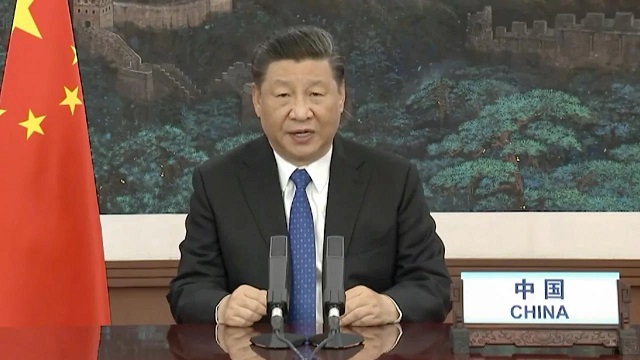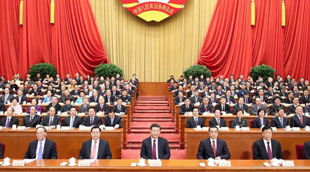
Chinese and American peoples can transcend differences in system, culture and language to forge deep friendships.
BEIJING | Xinhua | For years, “Kuliang,” a word uttered by Milton Gardner on his deathbed, had remained a puzzle for his wife, Elizabeth Gardner.
She knew that it was a place in China where her husband, an American physics professor, had spent his childhood, but she was unsure of its exact location. Despite this hurdle, following his passing in 1986, Elizabeth sought to honor Milton’s long-held wish to return to his childhood home.
Her quest to find this elusive place led her on several fruitless journeys to China, until a Chinese student in the United States finally decoded the mystery. Kuliang, or “Guling” in Mandarin, was a hillside resort among foreign expatriates in the suburbs of Fuzhou, capital of east China’s Fujian Province.
The student penned the American couple’s story and published it in the People’s Daily in April 1992. The article was noticed by Xi Jinping, then Fuzhou’s Party chief.
Touched by the story, Xi decided to help. He asked his subordinates to contact Elizabeth and invite her to Fuzhou, particularly Kuliang, where her husband had spent his childhood for 10 years in the 1900s.
Kuliang’s beautiful landscape and fresh mountain air etched themselves into Milton’s memory. Throughout the decades after returning to the United States in 1911, he longed to revisit this childhood home, but never got the chance.
In August 1992, Elizabeth, at the age of 72, finally arrived in Fuzhou. Xi welcomed Elizabeth on the evening of her arrival. He said he was moved by her husband’s attachment and longing for Fuzhou and Kuliang, and that was the reason for inviting her there.
“You can see for him the place he had missed all his life,” Xi told Elizabeth.
During her stay in Fuzhou, Elizabeth, with the help of the municipal government, went to Kuliang and met nine of Milton’s childhood friends. They shared memories of Milton and his family with Elizabeth.

Elizabeth said the trip allowed her to understand why her husband had missed China so much, and she was determined to continue to pass on the friendship between the two peoples.
For decades, Xi kept the American couple’s story close to his heart. In 2012, Xi, as China’s vice president, shared this story when addressing a welcoming luncheon in Washington. “I believe there are a lot of touching stories like this between Chinese and American people,” he said.
It isn’t just the Gardners who have a profound bond with Kuliang. Many American families share a profound connection with China through the hillside resort. Their descendants have formed the “Kuliang Friends” group to remember and maintain this enduring friendship. In 2023, they wrote a letter to Xi, now Chinese president, sharing their ties to the place.
Impressed by the efforts of the group’s members to bolster China-U.S. people-to-people exchanges, Xi said their stories once again highlight that “the Chinese and American peoples can transcend differences in system, culture and language to forge deep friendships.”
Xi has made more efforts to enhance exchanges between the two peoples, particularly among the youth. In November 2023, during his trip to San Francisco, Xi announced an initiative to invite 50,000 young Americans to China for exchange and study programs over the next five years.
On Monday, as part of the initiative, hundreds of young people from both China and the United States gathered in Fuzhou to launch the “Bond with Kuliang: 2024 China-U.S. Youth Festival.” Together, they planted saplings in Kuliang as a symbolic gesture of friendship.
“I am pleased to see young people from all walks of life in China and the United States gather in Fuzhou to relive the story of Kuliang, pass on the love of Kuliang, and help enhance exchanges and understanding between the two peoples,” Xi said in a letter to the event. ■
 The Independent Uganda: You get the Truth we Pay the Price
The Independent Uganda: You get the Truth we Pay the Price


